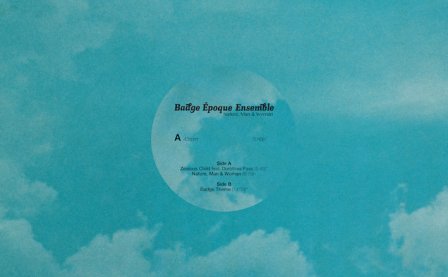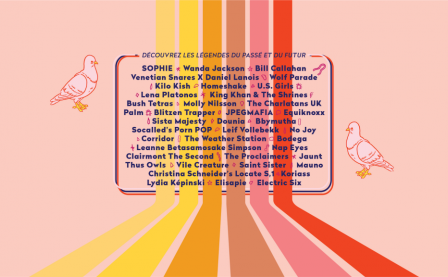As it is ever overwhelmingly loaded to be an American (let alone a patriotic one), this Toronto-based Canadian-American’s project title is all the more compelling in its estranged branding. It is huge to feel cut off from a group, and America is vast and varied enough to continuously provide horrific to transcendent answers to this common dilemma. Although we can ultimately choose with whom (or whomn’t) we align ourselves, we are nonetheless subject to fate and its accomplices. There is no love left without trust, and we’ll die much worse without any love in our lives. So the crime reverberates, its sanctioning and relativization an endless slap in the face. We ache to trust. We don’t want our enemies to know we are wounded, so they may revel in the fact that they got to us. We don’t want enemies to begin with. We want to trust in human nature. We want to trust in its saving grace. With just the right words, we meet with positive action. At its best, a poem is not something academic. It’s an essential, exhilarating push from the imperceptibly accumulated moorings of one’s idle apathies and defeatism. Often enough, poetry feels like the only human thing left worth a damn. Like a bridge, or clothing.
A U.S. Girls song is still a phenomenon whose sustenance amasses on you gradually, like basking in an unexpected ray of emerging sunlight. Remy’s impeccable taste is almost a distraction at this point. Gets one wanting to wax hyperbolic-like — Prince Vlad needs to turn in his waxy teeth cause he couldn’t ever vamp like “Rage of Plastics” (a rousing cover of an already amazing song). This record deserves all that foaming critical hoopla and more. But the more’s the thing here. On the nose with invisible fingers, In a Poem Unlimited is as lush, disgusted, and dour as the previous album, but with less obscuring vaporous swirl. The tone is more one of defiant, soaring majesty and poison-laced confection, underscored with lyrics of damnation and earnest imparting. Thanks to a massive collaboration of 20 musicians, including audacious wizard producer and GEM-onward collaborator Luis Percival, the psych-shredding (bringing a touch of the bombastic glam rock-informed arrangements heard on his Slim Twig material) of Maxmilian Turnbull and some clutch G-funk gospel vocals from James Baley, the mix is constantly bustling with life. And even in the project’s continued restless but shrewd eclecticism, this album lives up to its title with an epic, spring-clean screed of passionate grievance in the face a recently re-accelerated, ancient malignant patriarchal tyranny that’s only just starting to get called out for a reckoning at its extremities.
Despite taking this huge leap forward, U.S. Girls still retains a recognizable formula that has made each announcement of new material an exciting occasion. And it’s heartening to see Meg Remy steely in 2018, dancing with the crowd, singing her heart out with sentiments both baldly scolding and unapologetically commonplace. More than ever, the project’s stoicism is starkly offset with a candied delirium that compels listeners to movement and abandon. There are also partially destabilizing (in an endearing way) idiosyncrasies that swim up in the instrumentation, like throwing those mustardy “bum bum bum bum” backing vocals on the “Mad as Hell” chorus, further sallowing its sepia disco uplift. On three separate occasions, Meg launches into sassy, spoken asides that, despite going with her well-honed girl group aesthetic, feel more like stylistic turns than moments of emphasis. Then there’s the practically flatulent organ and wah pedal all over “L-Over.” And one might not be blamed for preferring the more skeletal original Free Advice Column version of “Incidental Boogie” over this LP’s vocodered rendition. No matter how initially off some choices strike the listener, there is a meticulousness at work that is always making one reasses the next time around.
Dire as the mood can be, there is a small but vital quotient of tenderness (“Rosebud” and “Poem”) and humor (both short interludes, some of the genre inflection, perhaps) on display. And the galloping dark horse disco of “Time” is an amazing ending for its precarious balance of anthemic urgency and rushed, twitchy hyper-exhaustion, incrementally heightened in its lengthy instrumental coda. The sentiment is a refreshingly disheveled feeling to close with for such an impressively mighty, in-control artist. But there is a special sort of takeaway. Something like, It is OK to panic. It is healthy to quell it if you can. But remember that those who wantonly take advantage of trust and abandon their humanity can never hang hysteria on you. As events accumulate, chaos and confusion are strange clothes we must find a way to wear and broken bridges we must figure out how to cross. As long as art is vital to us, U.S. Girls will be fine company in this adjustment.
More about: U.S. Girls




